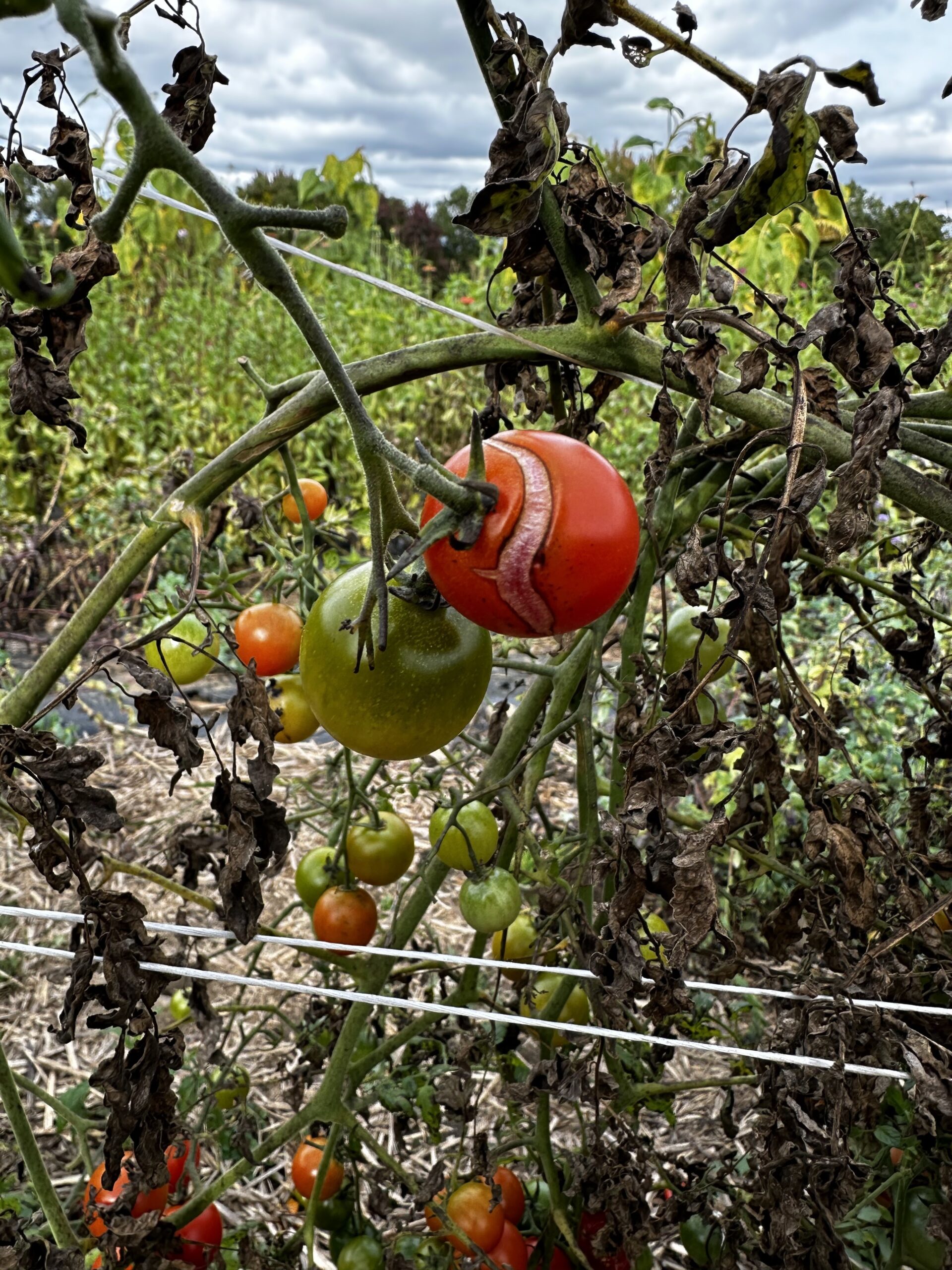By SARAH WU
As a senior, I am still figuring out jobs and Things That Are After College. So when I have the opportunity to meet alumni from my college working in the sustainability field, I decide to go. Our group of students journeys to Boston, and when we get off the bus, the icy snow pinches our tender cheeks and exposed hands.
We visit an alumna who invites us inside her Living Building-certified Dojo—certified in its ability not just to be self-sufficient, but to give excess energy back to the environment. Everything in the building is either recycled, repurposed or salvaged. An outside garden is fed by compost made from bodily waste. The alumna tells us the inspiration for the garden: her travels around the world to research third-world communities that use urine fertilizer to resist capitalism, colonialism, imperialism. She becomes quite close to these communities she’s visited and lived with. She has even written a book about it. Isn’t this incredible? the alumna tells us. That urine works as a fertilizer?
In the house I grew up in, a small white bucket of urine sits inside the bathroom. My mother would always complain—the urine stinks! But when she removed the bucket, my grandmother would put it back the next day. My grandmother insisted on watering her garden with this collected urine. Her plants grew, not in rows, but in an assortment of chaos. My grandmother’s tomatoes were larger and redder than the ones in the grocery store.
Still, despite the beautiful tomatoes, the white bucket used to be the cause of many sleepless nights. The bickering became background noise, floating up from the first floor: my mother, carrying away the bucket during the evenings, and my grandmother protesting.
Listening to the alumna, I imagine the dojo as a zoo. Its organic wooden walls fall away. Glass walls materialize, and our group of students turns into tourists. We press our grimy fingers against the clear windows to stare at—
my grandmother. Through the glass, we watch her pour a pale yellow substance from a small white bucket. It splashes against spots of red tomatoes.
She’s using urine! the alumna says excitedly. I wonder at how easily this old woman in the glass cage has become foreign. How ancient, and how strange.
I come from Garden City, New York. My neighbor guards her garden with a white fence. Plastic green mesh covers her small community of plants: a collection of tomatoes, basil, cabbages, and a melon. When I was in fifth grade, my favorite hobby was observing my neighbor through the first-floor window. I liked watching her pit-pattering around, watering the plants.
One day, a sudden yelling arose. My mother rushed outside. What’s wrong? she asked.
My neighbor pointed to the hunched back of my grandmother. My grandmother’s wiry hands were plucking tomato leaves from plants inside the neighbor’s backyard. These plants are sick, my grandmother said. I am removing the sick leaves from the plant.
My mother translated for my neighbor. Still, my neighbor shook her head, her mouth tight. Get her out, my neighbor repeated. She does not belong here.
My grandmother wanted to protect the plants from the sick leaves. My neighbor wanted to protect her garden from my invasive grandmother.
The year my grandmother invaded our neighbor’s lawn, a child down the block called out to me, and the suburban trees bore witness to his voice shouting, Chink! That year, I grew aware of my environmentally-friendly town. I learned which environments were protected, and which were not.
Ironically enough, my mother loved killing the invasive weeds in our front yard. When I was younger, I liked to play with the worms. My chubby hands clutched the squirming bodies as I transported them from dry road to wet grass. When I glanced over to my mother, she was a world away. My mother was in charge of extermination on the blue-colored patio of our driveway. Down with the dandelions! She performed chemical warfare with a can of white foam.
Presentability is essential. The neighbors are watching.
In Garden City, my family becomes foreign; in the Living Lab Dojo, my family becomes fetishized.
I often think about the weeds. Maybe I hold a bit of sympathy for them too, these creatures that are stubborn, and won’t die, no matter how much white foam my mother sprays on them. She is unmoved by the environmental articles that frame the dandelion as a superfood. The dandelion is an excellent source of vitamins A, C, and K! My mother reads these articles, and still, holds the nozzle down to exterminate the dandelions.
The alumna too, uses favorable language to describe rural gardening practices. She focuses on their usefulness and extracts information from these “third-world” practices. She loves these international communities too—speaks on their ingenuity and their bravery to create new alternatives for a broken system.
It is less about whether the alumna’s language around these communities is positive or negative, but rather, about the kind of care that is shaped by Otherness. This kind of care ultimately places the subject behind a glass cage. To be Othered is to acknowledge that even when our presence may be valued, we are one step away from being invasive.
A question lingers in the failed protection of the grandmother and the dandelion: What does it mean to hold care for people and objects beyond their desirability?
Now that I am four years into college, my mother is a little tired of watching the weeds. She is learning her own hobbies, things that are not related to being a mother. She is beginning to send me pictures of her day—the color of the sky, the empty pickleball court.
One day, my mother sends me a picture of cherry tomatoes. They are slightly misshapen.
Did you grow these? I ask.
My mother texts back a smiley face.
My mother’s gardening is not unique; in fact, most families in Garden City have a small garden. Still, I am happy that my mother is learning when the tomatoes like to be watered. She is learning how to sit in the dirt and sift through the ground with her hands.
When she crouches next to a plant, the land neither views her as strange nor foreign, but as a person learning how to care for it.
Behind glass walls, the tourists are watching how my grandmother picks a tomato. They marvel at the tomato’s smooth skin which contrasts with the wrinkled history of her hands. My grandmother pours urine onto the plants. They observe her trembling hands. Look, they say. They visit with dedication and take notes every day. They publish a book about urine techniques used by immigrant families to facilitate plant growth. Urine in small amounts makes plants grow faster! After a month, they never come back.
After a month, my grandmother picks a tomato. The tomato is round and red. She places the tomato inside of her mouth. When it pops, the liquid seeps out and spreads sweetness. Delight comes in small packages.
Such a shame, she thinks. To visit for so long, and never try a tomato for all this time.




